Soil shear strength defines a soil’s resistance to sliding or shearing along internal surfaces. It’s vital for safe construction, especially in foundations, slopes, and retaining walls.
Key Factors Affecting Shear Strength
Several elements influence shear strength:
Cohesion (c): Force binding soil particles together.
Internal Friction Angle (ϕ): Resistance from particle interlocking.
Effective Normal Stress (σ’): Stress acting perpendicular to a failure surface.
These components combine to determine the soil’s total resistance under stress.
Shear Strength Formula
The most widely used equation is the Mohr-Coulomb failure criterion:
τ = c + σ’ tan(ϕ)
Where:
τ = shear strength
c = cohesion (kPa or psf)
σ’ = effective normal stress (kPa or psf)
ϕ = angle of internal friction (degrees)
This formula helps engineers assess soil behavior under various loads.
Step-by-Step Guide to Calculate Shear Strength
1. Determine Cohesion (c)
Use lab tests like:
Unconfined Compression Test (for cohesive soils)
Triaxial Test
Direct Shear Test
Cohesion is generally higher in clayey soils and lower in sandy ones.
2. Find the Internal Friction Angle (ϕ)
Extract this from the same tests. Granular soils like sand usually have high ϕ values. Clays typically show lower values due to less particle friction.
3. Measure Effective Normal Stress (σ’)
This is calculated by subtracting pore water pressure (u) from total stress (σ):
σ’ = σ – u
Total stress comes from the weight of the soil column above the point of interest.
4. Apply the Mohr-Coulomb Equation
Once all values are known, plug them into:
τ = c + σ’ tan(ϕ)
Use consistent units throughout to avoid errors. For example, if cohesion is in kPa, all other units must match.
Example Calculation
Let’s say:
c = 20 kPa
ϕ = 30°
σ’ = 100 kPa
τ = 20 + 100 × tan(30°)
τ = 20 + 100 × 0.577
τ = 20 + 57.7 = 77.7 kPa
The shear strength is 77.7 kPa.
Different Tests for Accurate Results
To get precise values, use these:
Direct Shear Test: Simple and effective for coarse soils.
Triaxial Compression Test: Highly accurate for all soil types.
Unconfined Compression Test: Best for saturated cohesive soils.
Always select a test that matches the soil condition and project type.
Why Shear Strength Matters
Proper calculation helps prevent:
Slope failures
Foundation settlement
Structural damage
Engineers depend on these values to ensure safety and stability in any structure.
Tips for Reliable Results
Always use undisturbed soil samples.
Calibrate instruments before testing.
Consider moisture content and density.
Repeat tests for consistency.
Click Here To See Bearing Capacity Of Different Types Of Soil
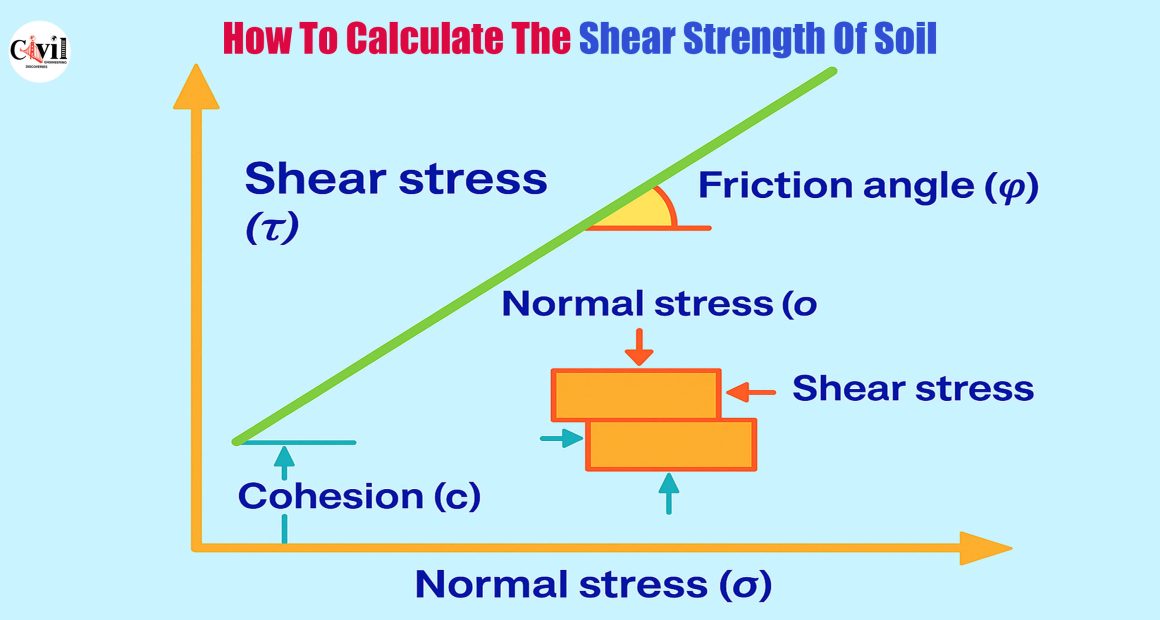

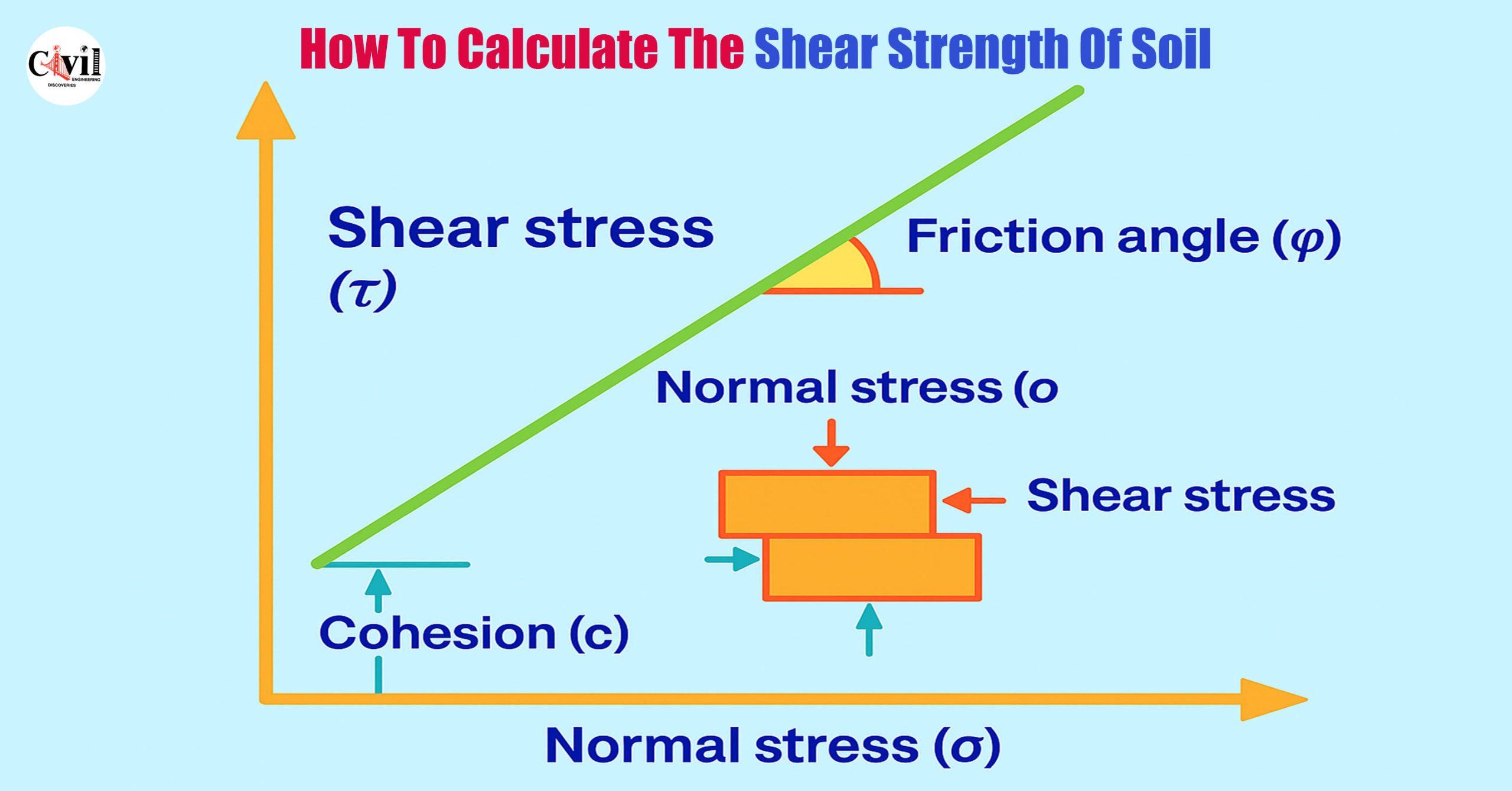

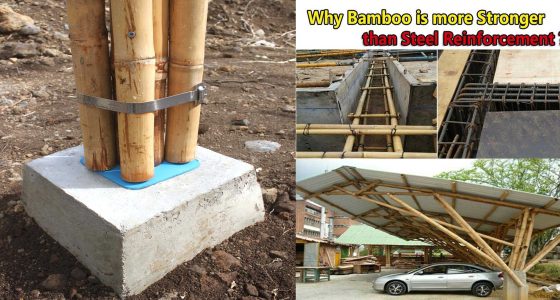
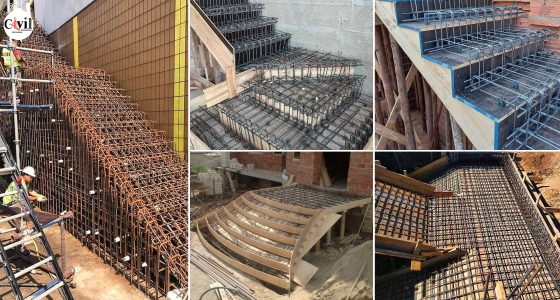
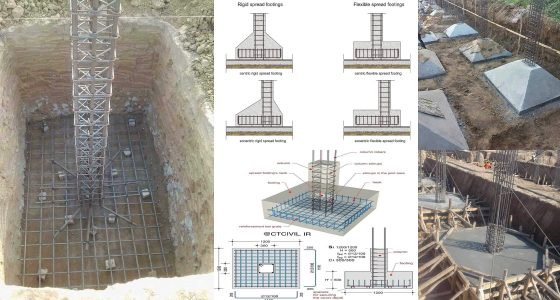
My profession doesn’t include this kind of need in daily basis so all this information straight into my phone app is really valuable !